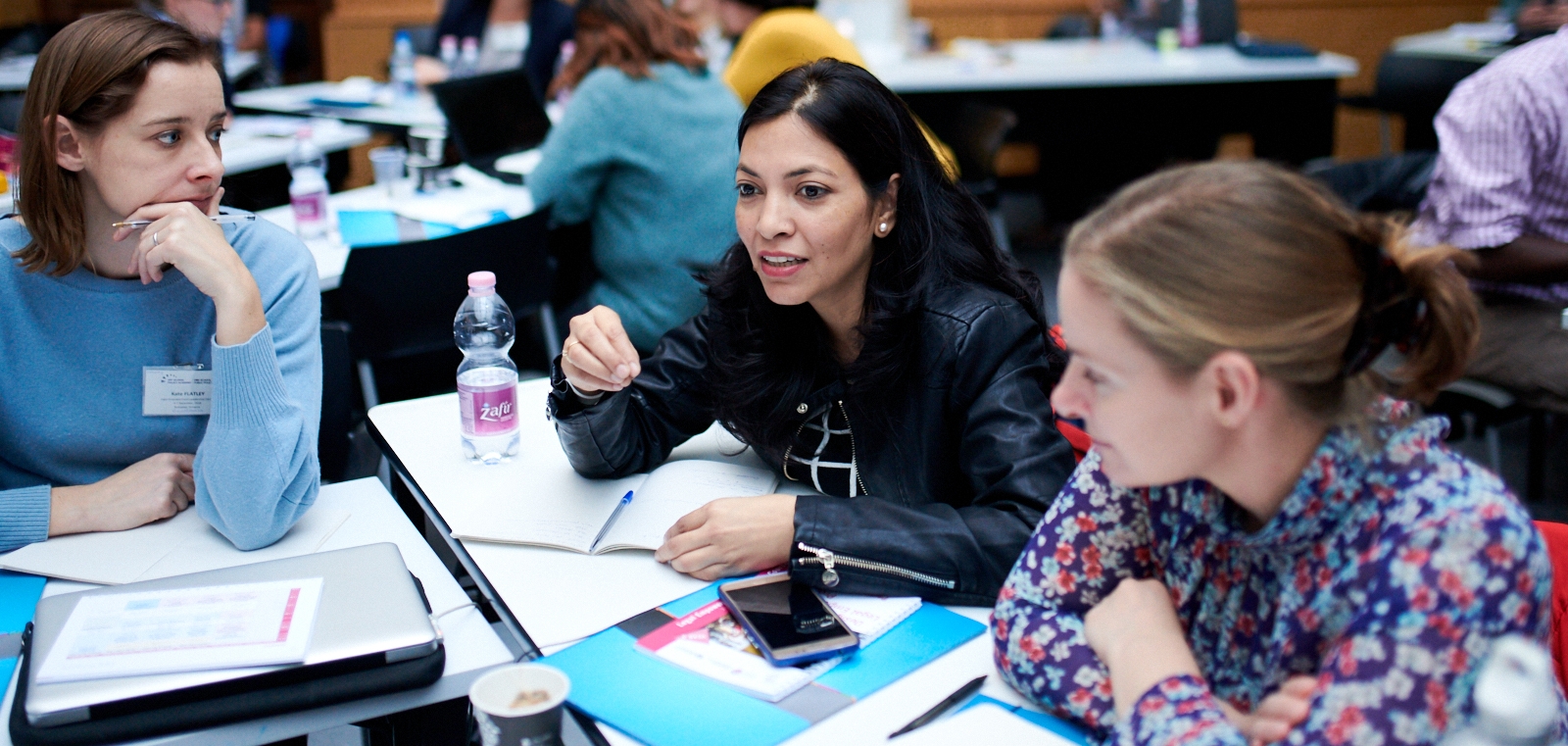
LEGAL
EMPOWERMENT
NETWORK
Looking Back at 2021 and Ahead to 2022
On a September evening in 2021, in front of 30,000 people in Central Park, in New York City, leaders from Namati, the Fund for Global Human Rights, and the Mott Foundation walked onto the Global Citizen Live stage to launch the world’s first Legal Empowerment Fund (LEF).
This is a huge win for our community. For over three years, members of the Legal Empowerment Network came together through the Justice For All campaign to demand greater funding and protection for grassroots justice defenders. Drawing attention to how severely under-resourced our field is, we engaged governments, donors, and other stakeholders at the national, regional, and global levels. The Legal Empowerment Fund is a direct result of Network members’ calls to action.
Hosted by the Fund for Global Human Rights, the LEF aims to raise 100 million USD over 10 years for grassroots justice efforts worldwide. The Hewlett and Mott Foundations have thus far contributed a total of 15 million USD. Namati committed an additional 5 million USD, thanks to a generous, one-time gift from Mackenzie Scott.
Meanwhile, the COVID-19 Grassroots Justice Fund, which we established in 2020 in partnership with The Elders, Pathfinders, and the Fund for Global Human Rights, reached its goal of raising 1 million USD and supporting 60 grassroots groups from 30+ countries with rapid-response, flexible grants. The LEF will take up this torch moving forward. Like the COVID-19 Fund, the LEF will use a participatory grant-making process, in which recipients are determined by justice advocates themselves, and provide unrestricted funds to legal empowerment groups facing rapidly evolving challenges.
These financial resources are crucial to our work, but only part of the fuel needed to drive our movement for justice forward. Through collaborative learning, community building, and collective action, the Legal Empowerment Network aims to amplify the power of thousands of justice defenders across 170 countries.
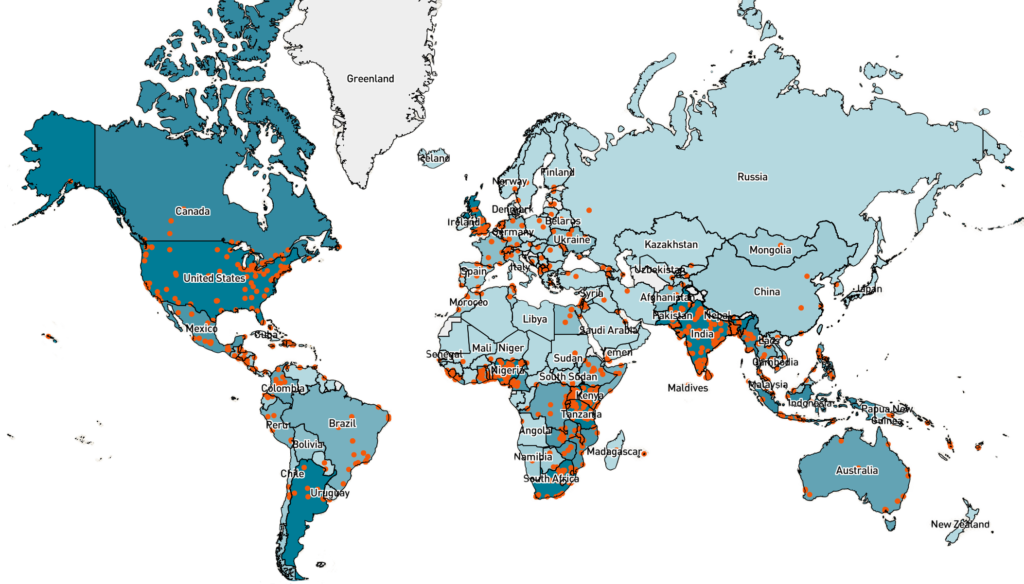
By the end of 2021, the Legal Empowerment Network had more than 11,000 individual and 2,800 organizational members from 170 countries.
Network members shared experiences and solutions with each other throughout the year.
In response to a global surge in gender-based violence, for example, 19 member organizations from 15 countries synthesized what they learned from their rapid adaptations during the pandemic. They documented successful strategies for protecting women, and are now promoting their findings across the Network.
Meanwhile, a cohort of 17 organizations began designing action-research projects, with the support of the International Development Research Centre (IDRC). Each project will explore how it’s possible to build from grassroots efforts to address specific violations of rights — police abuse, for example, or denial of services in informal settlements — towards fundamental improvements in laws and systems.
Across the globe, members engaged in online dialogues on a range of topics, from the use of legal empowerment methods to address structural inequalities in Africa, to leveraging Latin America’s Escazú Agreement to increase access to information, participation, and justice in environmental decision-making across that region. 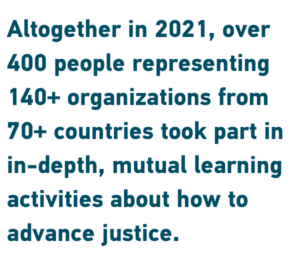
Altogether in 2021, over 400 people representing 140+ organizations from 70+ countries took part in in-depth, mutual learning activities about how to advance justice.
This learning feeds directly into ongoing discussions about the Network’s future advocacy agenda. As the Justice For All campaign winds down in its current form, we are working to identify new ways to help our members protect themselves in increasingly repressive contexts, while rallying resources to the field. We are also laying the foundation for new advocacy campaigns in two priority areas for Network members — gender justice and environmental justice.
While learning and collective action expand our horizons, bonds of community tie us together. Presented with constant challenges in our rapidly changing world, Network members have come to rely on each other for support and guidance. In February, member organizations issued a statement expressing solidarity with the people of Myanmar in their struggle for peace and justice. In an ensuing private discussion for over 120 Myanmar paralegals and activists, Network members from South Africa, Thailand, and Cambodia shared their experiences surviving and countering repression in authoritarian regimes.
Fueled by each other’s courage and support in instances like these, the Legal Empowerment Network will continue to overcome obstacles and drive our movement forward in 2022.
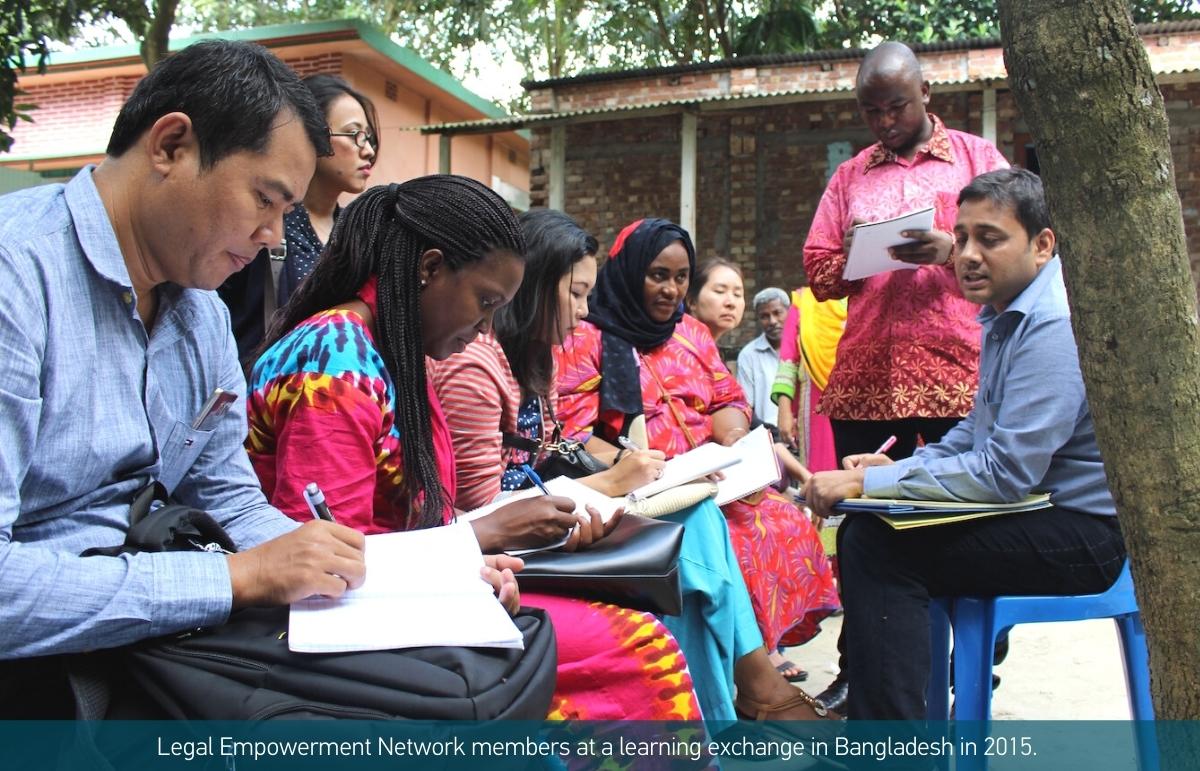
Learn More
This is a carousel with auto-rotating slides. Hover to pause or use the pause and play buttons bellow the slide show. Use Next and Previous buttons to navigate, or jump to a slide.
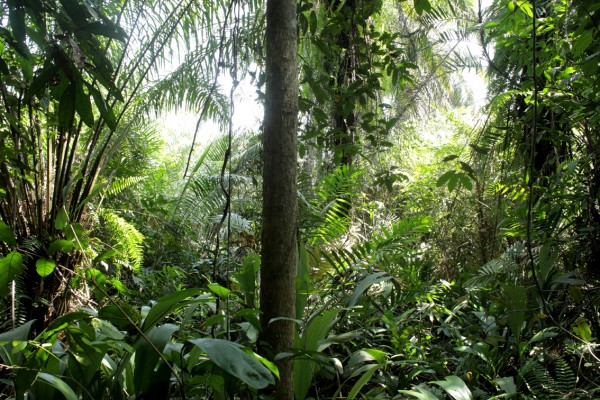
OP-ED: Why Planetary Survival Will Depend on Environmental Justice
In this L.A. Times op-ed, Namati’s Vivek Maru illustrates a global pattern of communities with less power bearing the brunt of environmental degradation. He argues for a legal framework that works across borders to counter this injustice.
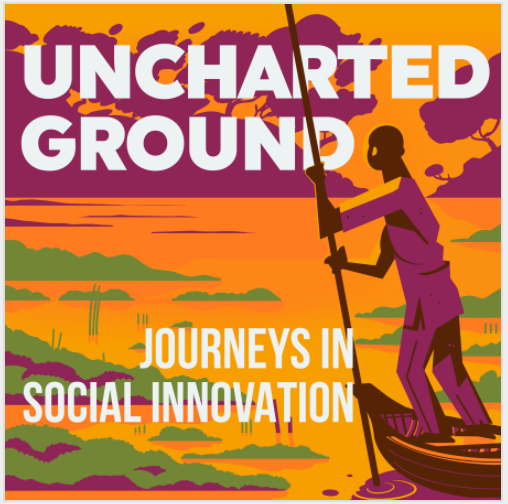
PODCAST: A Global Movement for Environmental Justice
In this podcast for Stanford Social Innovation Review, Vivek Maru discusses building a global movement of environmental justice organizations as a means of stopping powerful individuals and entities that violate environmental law.
RESOURCE: Gender Justice During and Beyond the COVID-19 Crisis
Legal Empowerment Network members examine how grassroots justice groups responded to a global increase in gender-based violence due to the pandemic & draw key lessons from their initiatives.
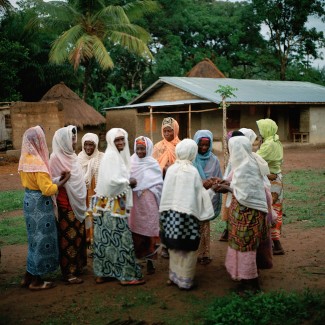
BLOG: Reducing Violence Against Women and Girls Through Legal Empowerment
The people-centered and community-based approaches of grassroots justice groups are vital to supporting women and girls in situations of violence, assert Legal Empowerment Network members.
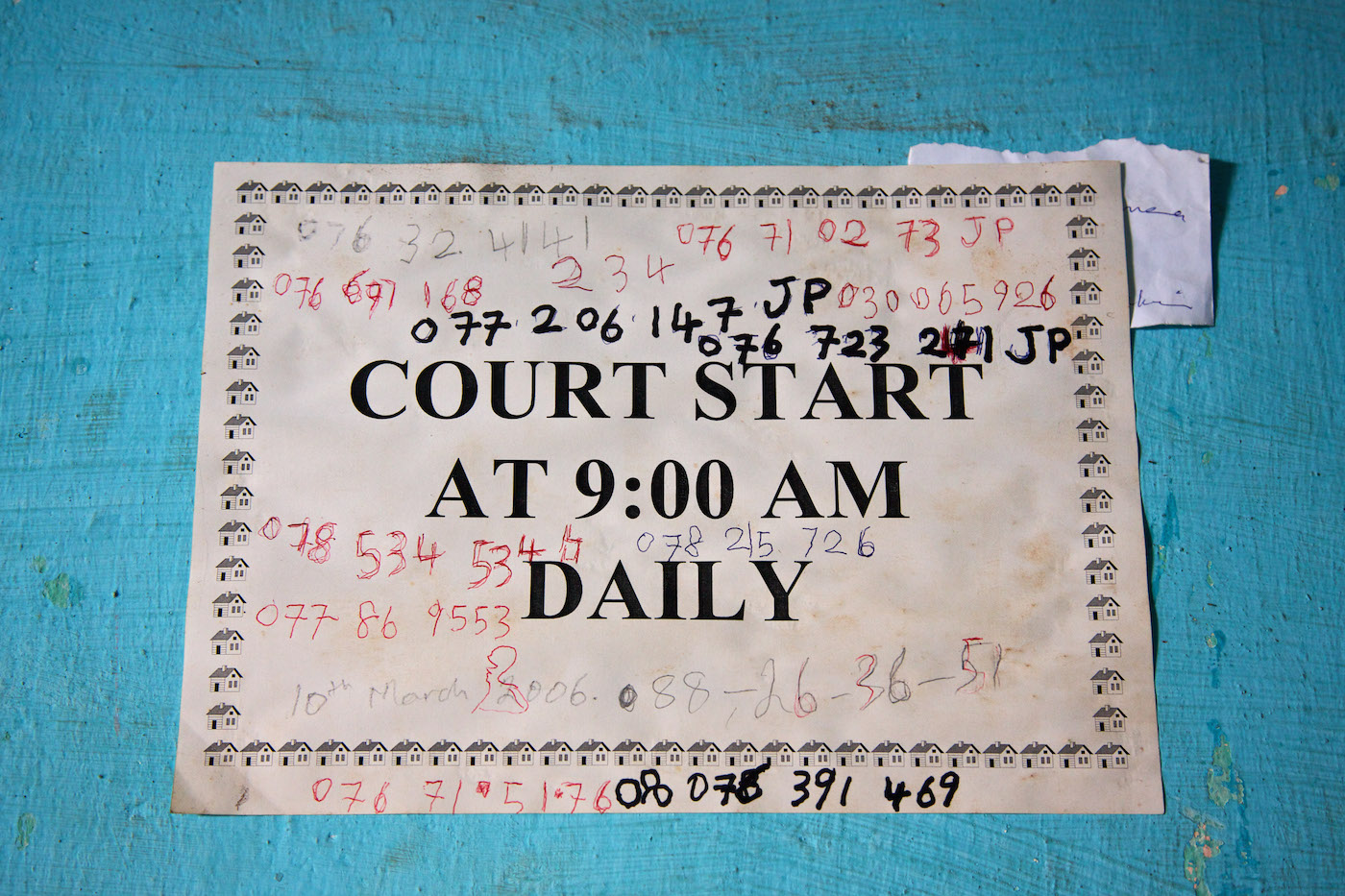
BLOG: Justice is Key to Realising ‘The Africa We Want’, But We’re Missing the Mark
Senior Network Officer Aimee Ongeso and Network member Dr. Annette Mbogoh call for the African Union's Agenda 2063 to include targets for the legal recognition & financing of community paralegals.
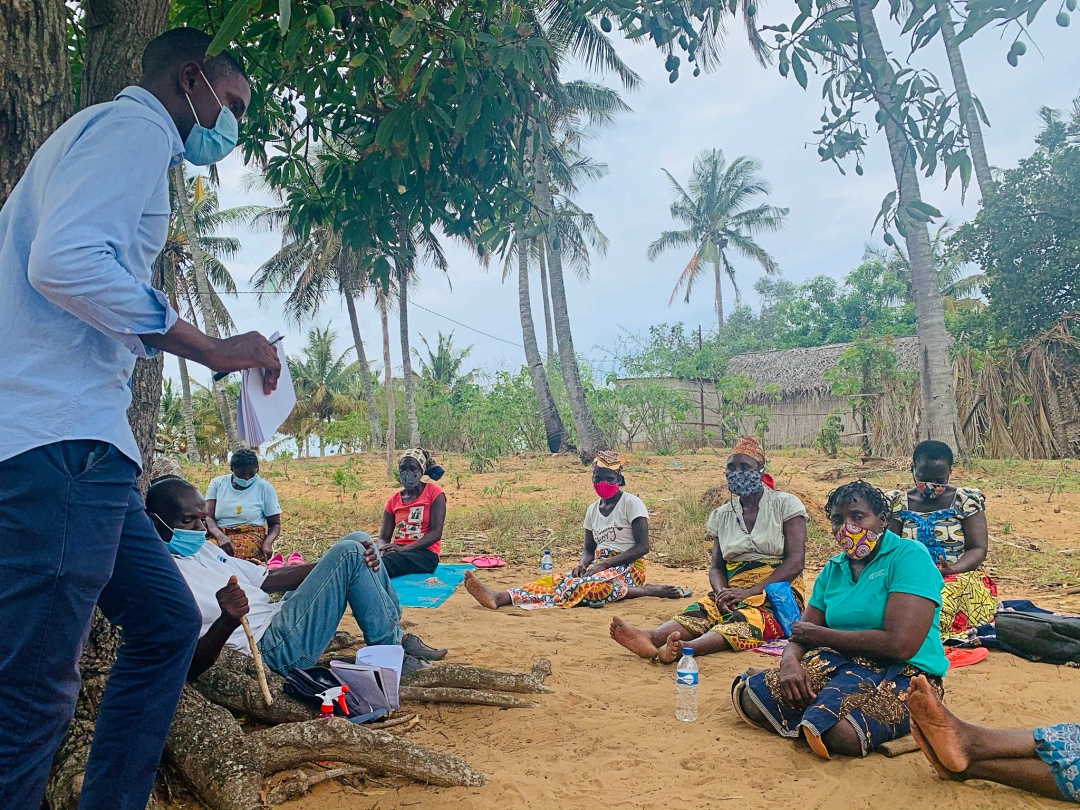
ARTICLE: The COVID-19 Grassroots Justice Fund that Invests in People-led Justice Solutions
Network Director Abigail Moy explains in Alliance Magazine how this model of flexible grants responds to the needs of grassroots groups taking on structural injustices.
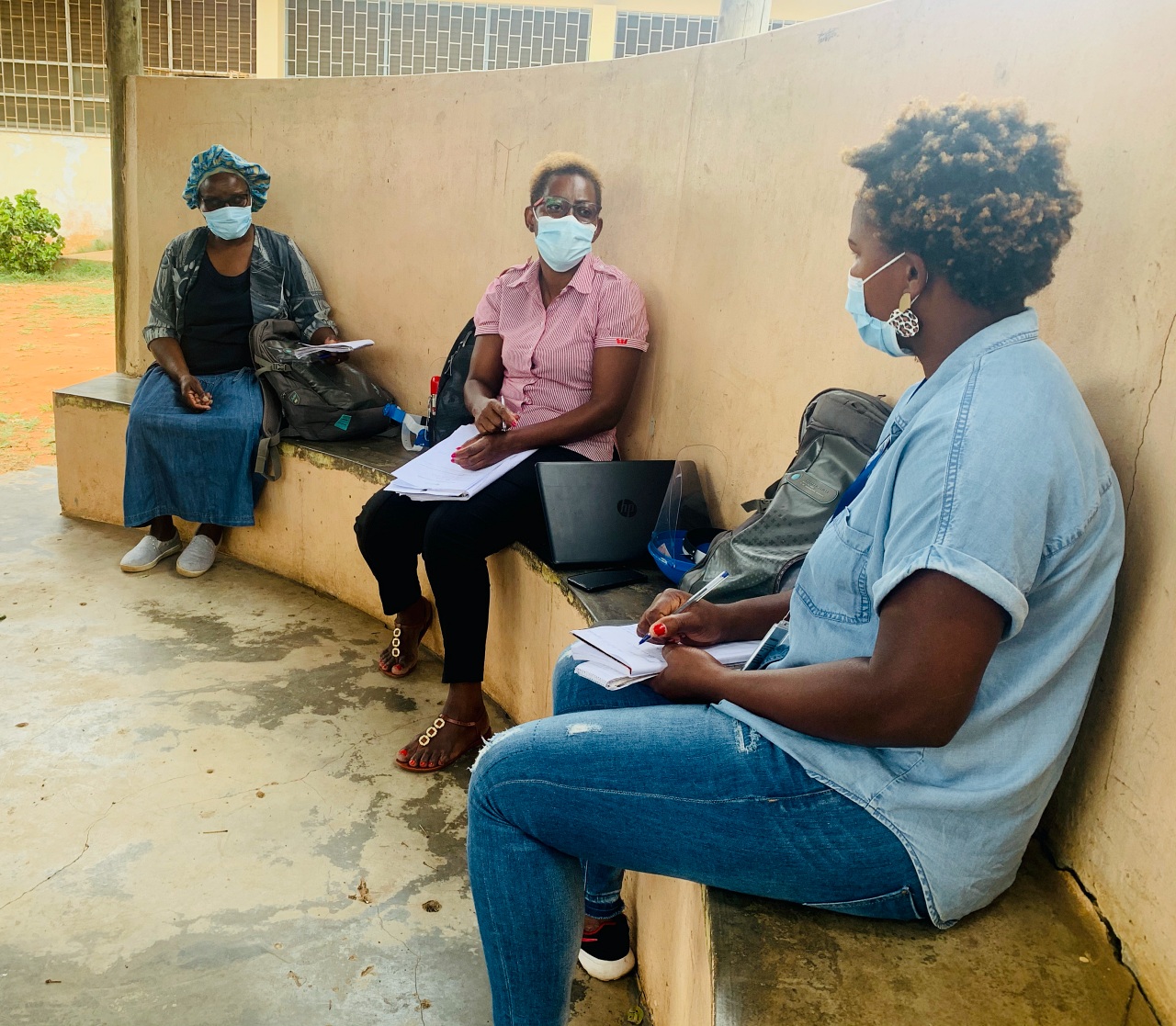
BLOG: Global Justice Through Small Grants: What the COVID-19 Grassroots Justice Fund Did Right
Grantees share what flexible funding helped them achieve, such as helping persons with disabilities access COVID-related government services.
RESOURCE: Providing legal services remotely: A Guide to Available Technologies and Best Practices
The Legal Empowerment Network co-produced this practical guide for legal service providers in rural areas across the world, so they can effectively deliver services amid a pandemic, and beyond.
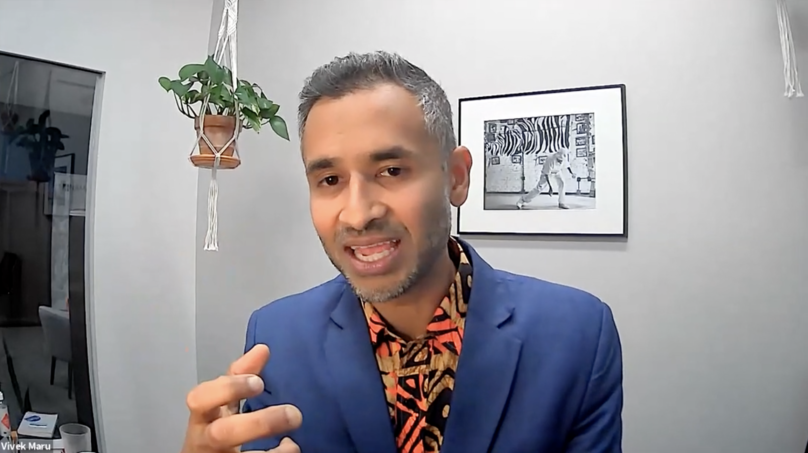
LECTURE: Stop a Land Grab, Change the System: A Pathway to Climate and Environmental Justice
In his 2021 Gruber Distinguished Lecture for Yale Law School, Vivek Maru explores how we can grow a stronger global movement for grassroots environmental justice.
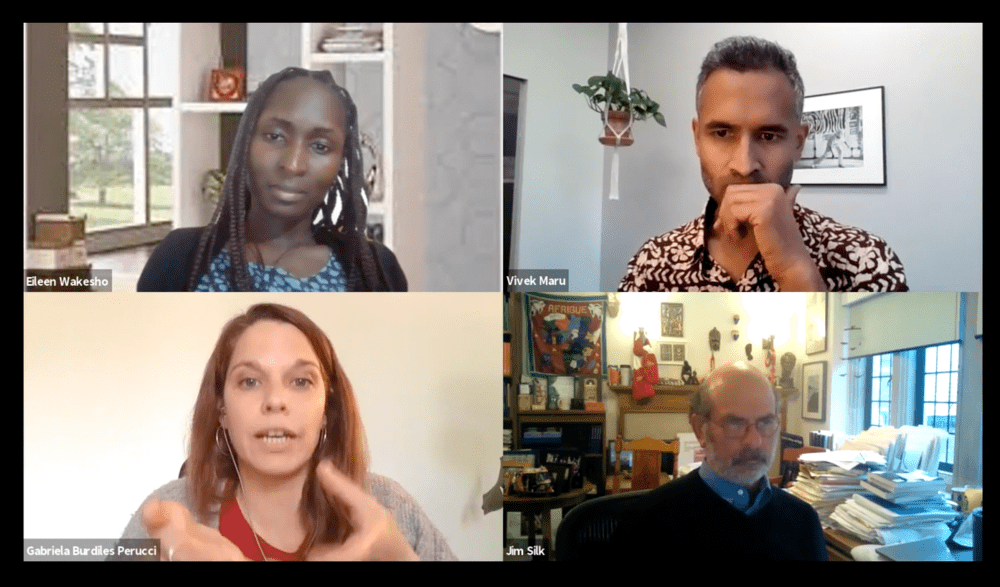
PANEL: Gruber Lecture in Global Justice Panel Discussion - Environmental Justice
This panel discussion hosted by Yale Law School brings Namati staff and Network member Gabriela Burdiles together to talk about environmental justice.

PANEL: Ecomodern Justice for a Multi-Polar World
In this climate justice panel event, hosted by the Breakthrough Institute, Vivek Maru makes the case for looking beyond the dispute between nation states, and seeing the ways in which environmental harm is concentrated in communities with less wealth and power, in rich and poor countries alike.
